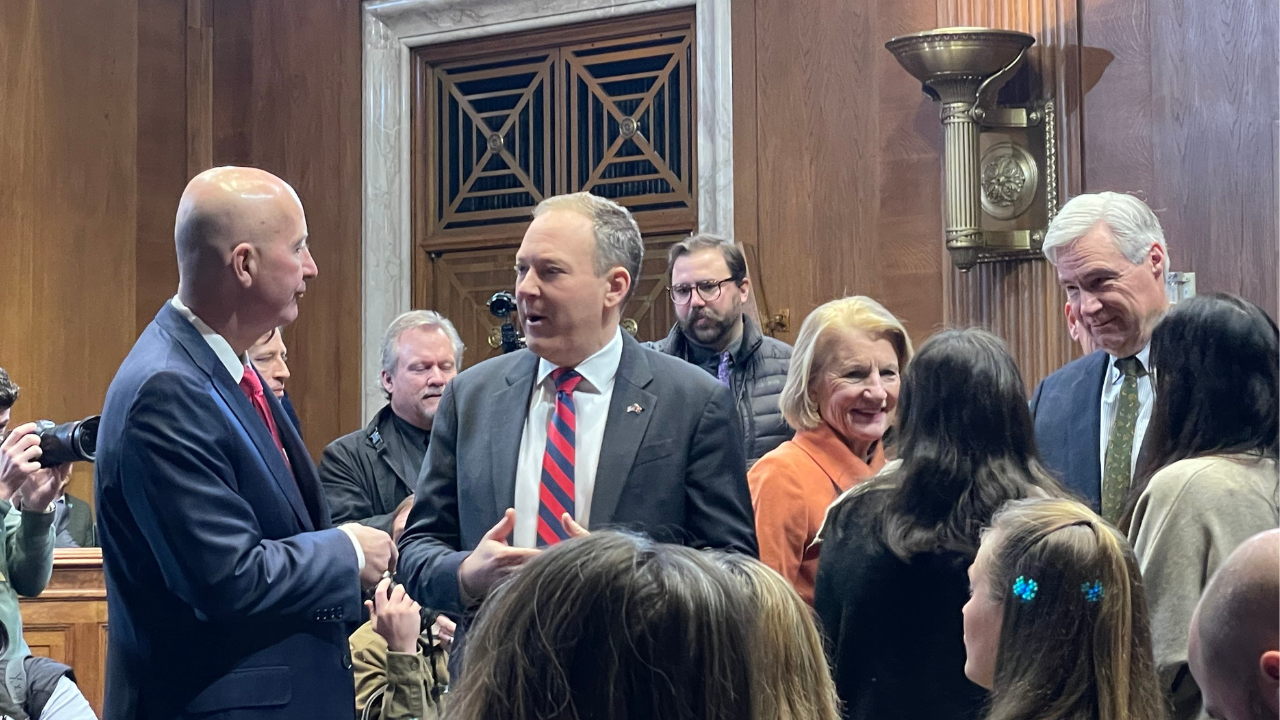Zeldin grilled by Democrats on climate change, Trump’s stance on carbon emissions during EPA hearing

Former New York Congressman Lee Zeldin faced a tough confirmation hearing on Thursday as he sat before the Senate Environment and Public Works Committee to be considered for the role of leading the Environmental Protection Agency. During the hearing, Zeldin was grilled by Democrats on his views of climate change, with particular focus on the effects of carbon dioxide and pollutants on the atmosphere.
Senate Environment and Public Works Committee ranking member Sheldon Whitehouse questioned Zeldin on whether carbon dioxide is considered a pollutant. Zeldin responded by stating that carbon dioxide emitted by an individual is not a pollutant, but acknowledged that in larger quantities, the EPA should indeed focus on reducing carbon dioxide output.
Whitehouse also displayed a topographic map of Rhode Island, highlighting areas that are at risk of being underwater due to climate change. He pointed out that Zeldin’s former congressional district is located near the coast, emphasizing the importance of understanding the impact of rising sea levels.
Senator Bernie Sanders, a vocal advocate for addressing climate change, highlighted the extreme weather events and natural disasters that have occurred in recent years, attributing them to the effects of climate change. He questioned Zeldin on whether he believes climate change poses an existential threat.
In contrast, Senator John Curtis praised Zeldin for his measured stance on climate change, emphasizing the need for bipartisan cooperation on environmental issues. However, the hearing was not without its moments of humor, as Sanders jokingly suggested that a ringing cell phone near Zeldin was a call from the fossil fuel industry.
Senator Edward Markey raised questions about Zeldin’s previous statements on reducing reliance on fossil fuels, prompting a discussion on the importance of pursuing cleaner energy sources. Throughout the hearing, Zeldin emphasized the need for collaboration and innovation in addressing environmental challenges.
If confirmed, Zeldin pledged to uphold the EPA’s core mission of protecting human health and the environment. He expressed a commitment to fostering a collaborative culture within the agency and supporting career staff dedicated to environmental stewardship. Zeldin’s environmental voting record has been mixed, but he has previously advocated for measures to improve air and water quality in his home state of New York.
In conclusion, Zeldin’s confirmation hearing highlighted the importance of addressing climate change and environmental protection. The discussion underscored the need for leadership that can find common ground to tackle urgent environmental issues while fostering economic growth. Zeldin’s commitment to balancing environmental conservation with economic interests will be closely scrutinized as he seeks to lead the EPA.




